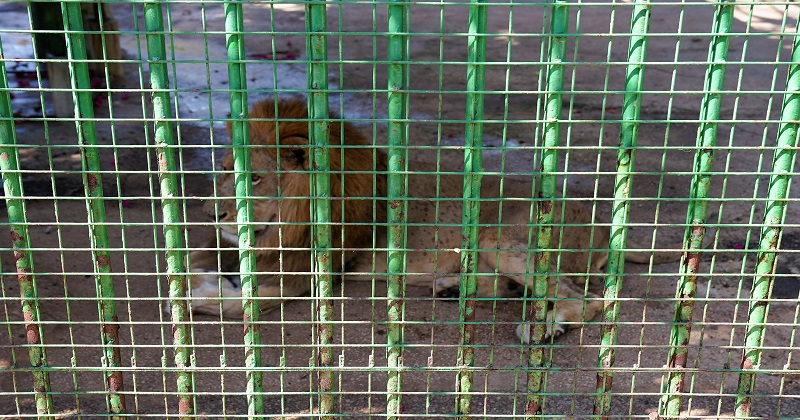
The two large cats, thin and weak, barely moved as they slept on the concrete floor of their cage, while an emaciated Syrian brown bear frantically paced his enclosure nearby.
The three hungry creatures are among the remaining, neglected inmates of a zoo in Hazmieh, near Beirut, whose care has become prohibitively expensive due to Lebanon’s economic crisis.
‘At this point, they aren’t truly lions,’ said Jason Mier, head of Animals Lebanon, a rescue organization looking for homes for them and other zoo animals in international sanctuaries. ‘Those are lions by DNA, but they are merely two creatures who have given up on life and are laying here,’ Jason added.
Animals are surviving in identical conditions at all five of Lebanon’s zoos, victims of a financial crisis that has reduced more than half of the population to poverty and destroyed more than 90% of the value of the local currency.
A lion eats over 50 kilogrammes (110lb) of food a week, costing 100,000 Lebanese pounds – or around $6 at the informal market rate – per kilo. The minimum monthly wage is just 675,000 pounds.
‘There is no way any admission price can pay the costs of properly caring for these animals,’ Jason said.
Lebanon has successfully moved around 15 lions and tigers abroad, as well as approximately 250 other wild animals, cats, and dogs during the last two years. Two bears are on their way to Colorado, and the rescue organisation intends to transfer three more lions there or to South Africa.
It is attempting to avoid what occurred in zoos in conflict zones such as Syria, Yemen, and Iraq from occurring in Lebanon before it is too late.

Post Your Comments